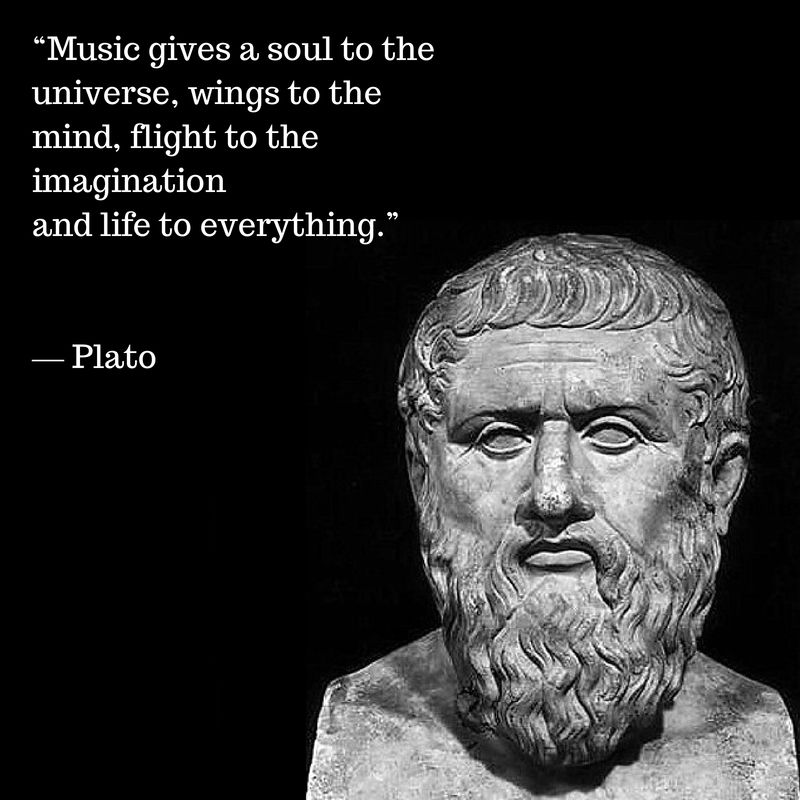Blog
José Monje Cruz (5 December 1950 – 2 July 1992), better known by his stage name
He was born in San Fernando, Cádiz, Spain, into a Spanish Romani family, the seventh of eight children. His mother was Juana Cruz Castro, a “Canastera”, literally a basket weaver, and meaning from a wandering Roma family, and whose gift of singing was a strong early influence.
His father, Juan Luis Monje, was also a singer as well as a blacksmith, and had a forge where Camarón worked as a boy. His uncle José nicknamed him Camarón (Spanish for “Shrimp”) because he was blonde and fair skinned.
When his father died of asthma, while still very young, the family went through financial hardship. At the age of eight he began to sing at inns and bus stops with Rancapino to earn money. At sixteen, he won first prize at the Festival del Cante Jondo in Mairena del Alcor. Camarón then went to Madrid with Miguel de los Reyes and in 1968 became a resident artist at the Tablao Torres Bermejas, where he remained for twelve years.
, was a Spanish Romani flamenco singer. Considered one of the all-time greatest flamenco singers, he was noted for his collaborations with Paco de Lucía and Tomatito, and the three of them were of major importance to the revival of flamenco in the second half of the 20th century.
more...Richard Wayne Penniman (December 5, 1932 – May 9, 2020), known professionally as Little Richard, was an American singer, pianist, and songwriter. He was an influential figure in popular music and culture for seven decades. Described as the “Architect of Rock and Roll“, Richard’s most celebrated work dates from the mid-1950s, when his charismatic showmanship and dynamic music, characterized by frenetic piano playing, pounding backbeat and powerful raspy vocals, laid the foundation for rock and roll. Richard’s innovative emotive vocalizations and uptempo rhythmic music played a key role in the formation of other popular music genres, including soul and funk. He influenced singers and musicians across musical genres from rock to hip hop; his music helped shape rhythm and blues for generations.
“Tutti Frutti” (1955), one of Richard’s signature songs, became an instant hit, crossing over to the pop charts in the United States and the United Kingdom. His next hit single, “Long Tall Sally” (1956), hit No. 1 on the Billboard Rhythm and Blues Best-Sellers chart, followed by a rapid succession of fifteen more in less than three years. In 1962, after a five-year period during which Richard abandoned rock and roll music for born-again Christianity, concert promoter Don Arden persuaded him to tour Europe. During this time, the Beatles opened for Richard on some tour dates.
Richard is cited as one of the first crossover black artists, reaching audiences of all races. His music and concerts broke the color line, drawing black and white people together despite attempts to sustain segregation. Many of his contemporaries, including Elvis Presley, Buddy Holly, Bill Haley, Jerry Lee Lewis, the Everly Brothers, Gene Vincent, Pat Boone, and Eddie Cochran, recorded covers of his works.
Richard was honored by many institutions. He was inducted into the Rock and Roll Hall of Fame as part of its first group of inductees in 1986. He was also inducted into the Songwriters Hall of Fame. He was the recipient of Lifetime Achievement Awards from The Recording Academy and the Rhythm and Blues Foundation. In 2015, Richard received a Rhapsody & Rhythm Award from the National Museum of African American Music. “Tutti Frutti” was included in the National Recording Registry of the Library of Congress in 2010, which stated that his “unique vocalizing over the irresistible beat announced a new era in music”.
more...Alex or Aleck Miller (originally Ford, possibly December 5, 1912 – May 24, 1965 Greenwood, MS), known later in his career as Sonny Boy Williamson, was an American blues harmonica player, singer and songwriter. He was an early and influential blues harp stylist who recorded successfully in the 1950s and 1960s. Miller used various names, including Rice Miller and Little Boy Blue, before calling himself Sonny Boy Williamson, which was also the name of a popular Chicago blues singer and harmonica player. To distinguish the two, Miller has been referred to as Sonny Boy Williamson II.
He first recorded with Elmore James on “Dust My Broom“. Some of his popular songs include “Don’t Start Me Talkin’“, “Help Me“, “Checkin’ Up on My Baby“, and “Bring It On Home“. He toured Europe with the American Folk Blues Festival and recorded with English rock musicians, including the Yardbirds and Animals. “Help Me” became a blues standard, and many blues and rock artists have recorded his songs.
more...Francesco Scarlatti (5 December 1666 – c.1741) was an Italian Baroque composer and musician and the younger brother of the better known Alessandro Scarlatti.
Francesco was ever to live under the shadow of his better known relatives, Alessandro Scarlatti (his elder brother) and his nephew, Domenico. However, Francesco himself was an accomplished musician and held a number of appointments.
more...Egberto Amin Gismonti (born 5 December 1947) is a Brazilian composer, guitarist and pianist. Gismonti is a self-taught guitarist. After returning to Brazil, he designed guitars with more than six strings, expanding the possibilities of the instrument. Approaching the fretboard as if it were a keyboard, Gismonti gives the impression that there is more than a single guitar player. Gismonti’s sojourn in the Xingu region of the Amazon basin made a lasting impression. This is documented musically in tunes such as “Yualapeti” and “Sapain” (Yualapeti shaman, Sapain) and in the recordings Dança das Cabeças (“Dance of the Heads”, 1977), Sol do Meio-Dia (“Noon Sun”, 1978), which he dedicated to the Xingu, and Duas Vozes(“Two Voices”, 1984).
more...MAROONS had an exciting event today at Episcopal Homes in St Paul with a warm, energetic and good size audience. Special thanx to Jane Matteson and support from Will Hutchinson. Photos by Gerry Francis! Thank You Gerry! Irie vibes seen?
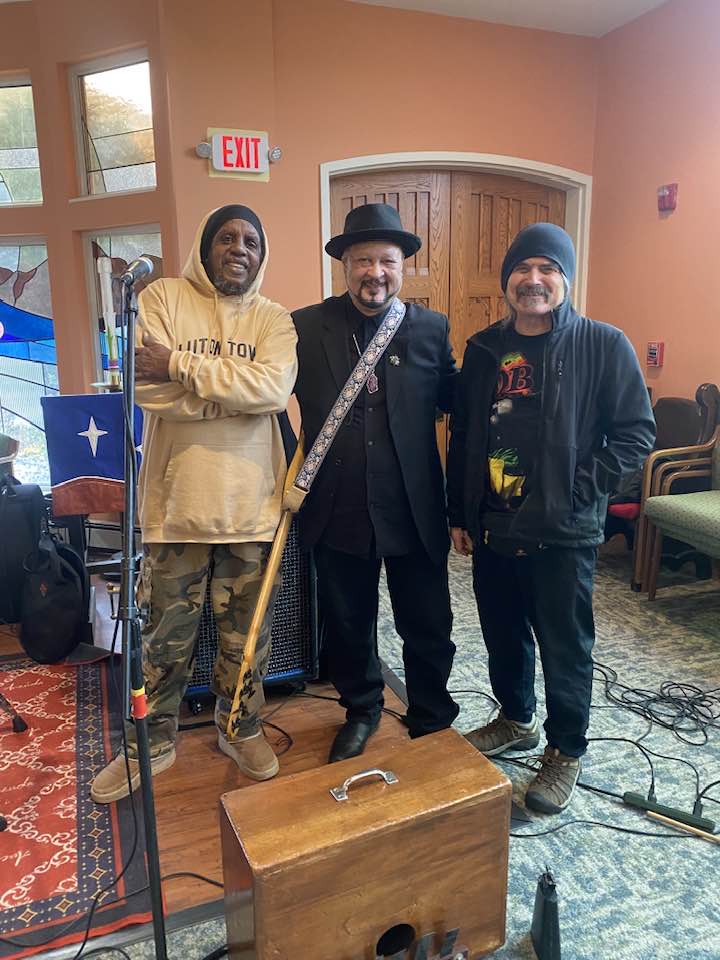
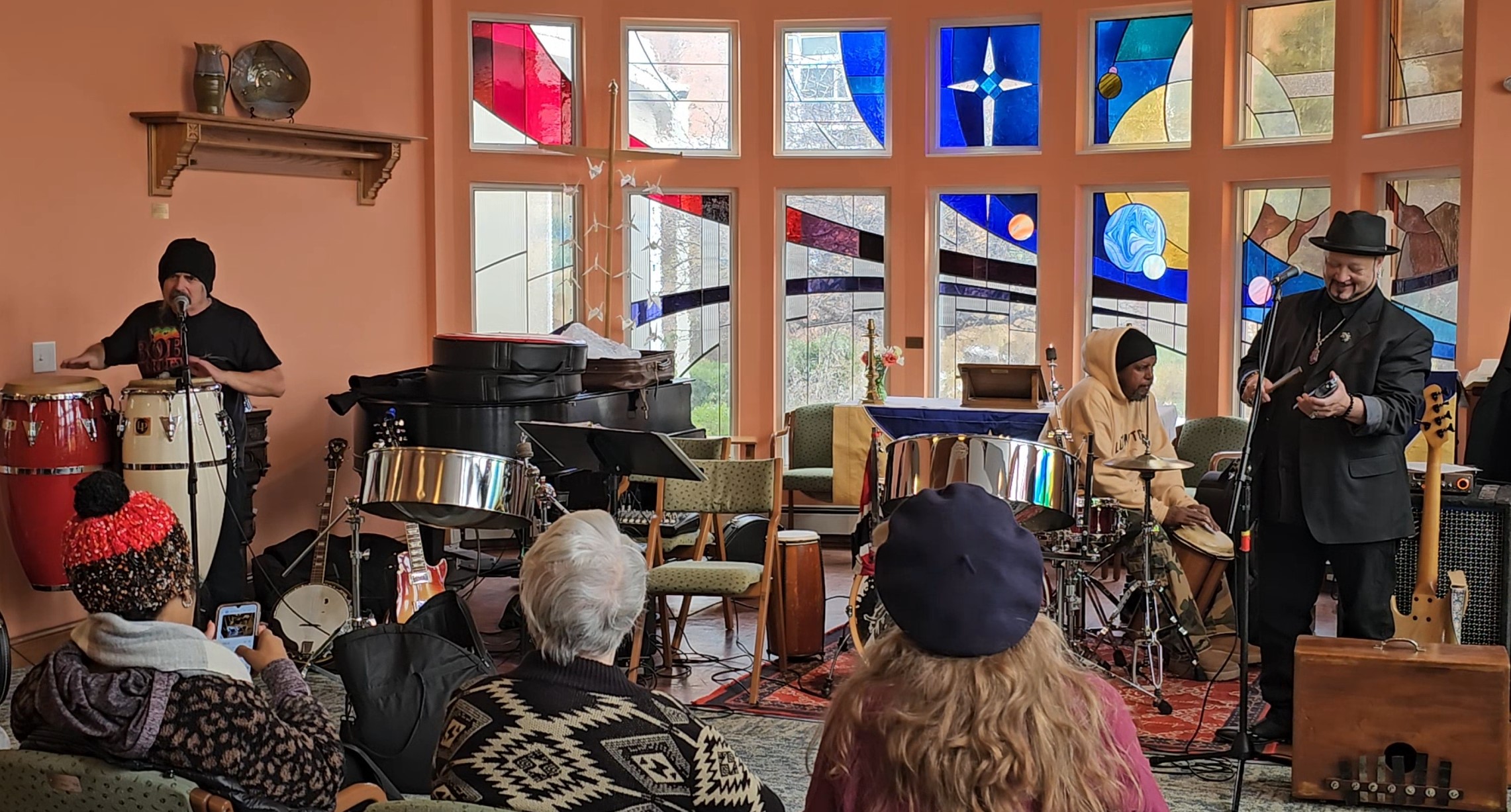
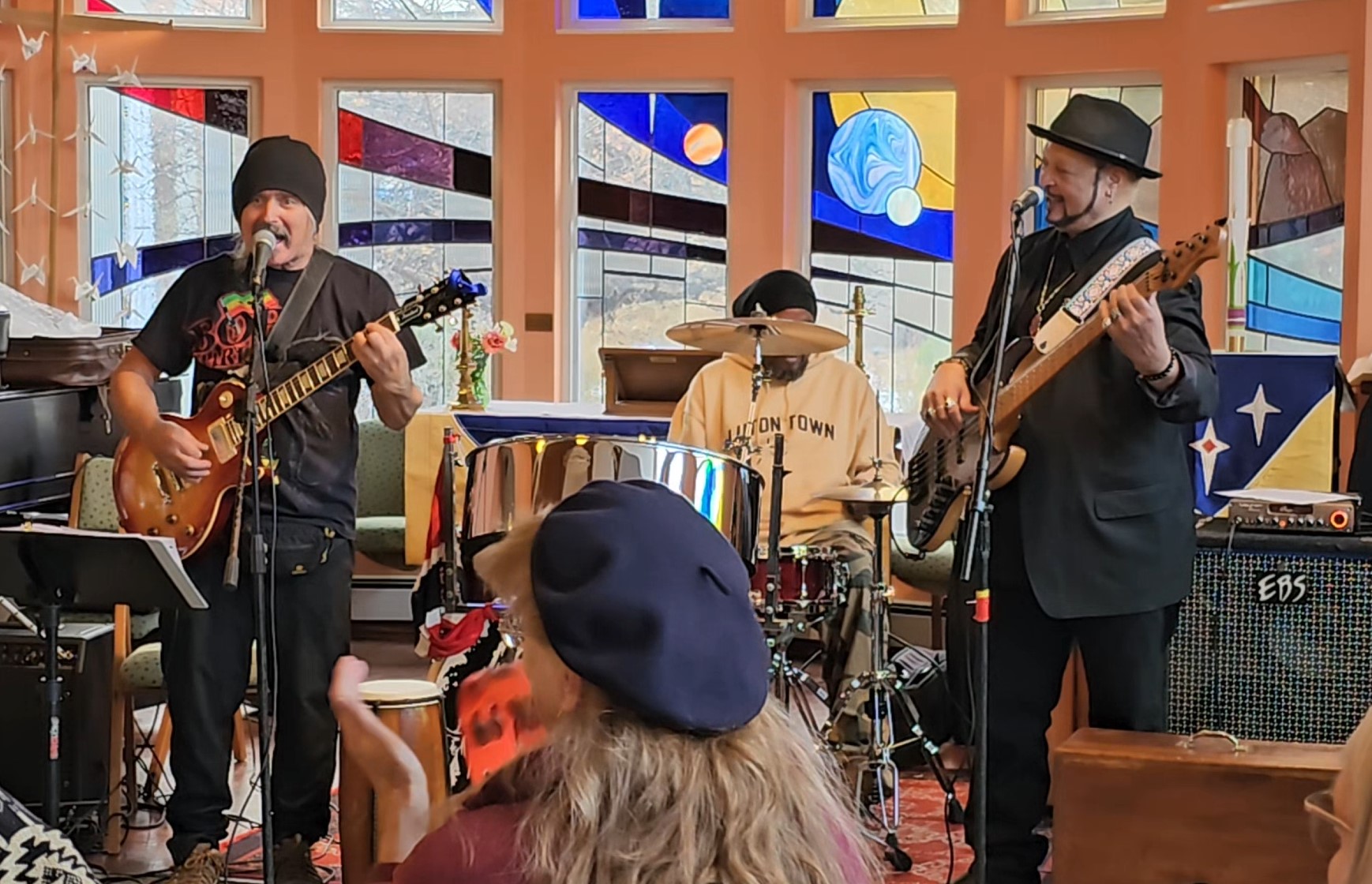
Christopher Hillman (born December 4, 1944) is an American musician. He was the original bassist of the Byrds. With frequent collaborator Gram Parsons, Hillman was a key figure in the development of country rock, defining the genre through his work with the Byrds, the Flying Burrito Brothers, Manassas and the country-rock group the Desert Rose Band. He was inducted into the Rock and Roll Hall of Fame in 1991 as a member of the Byrds.
more...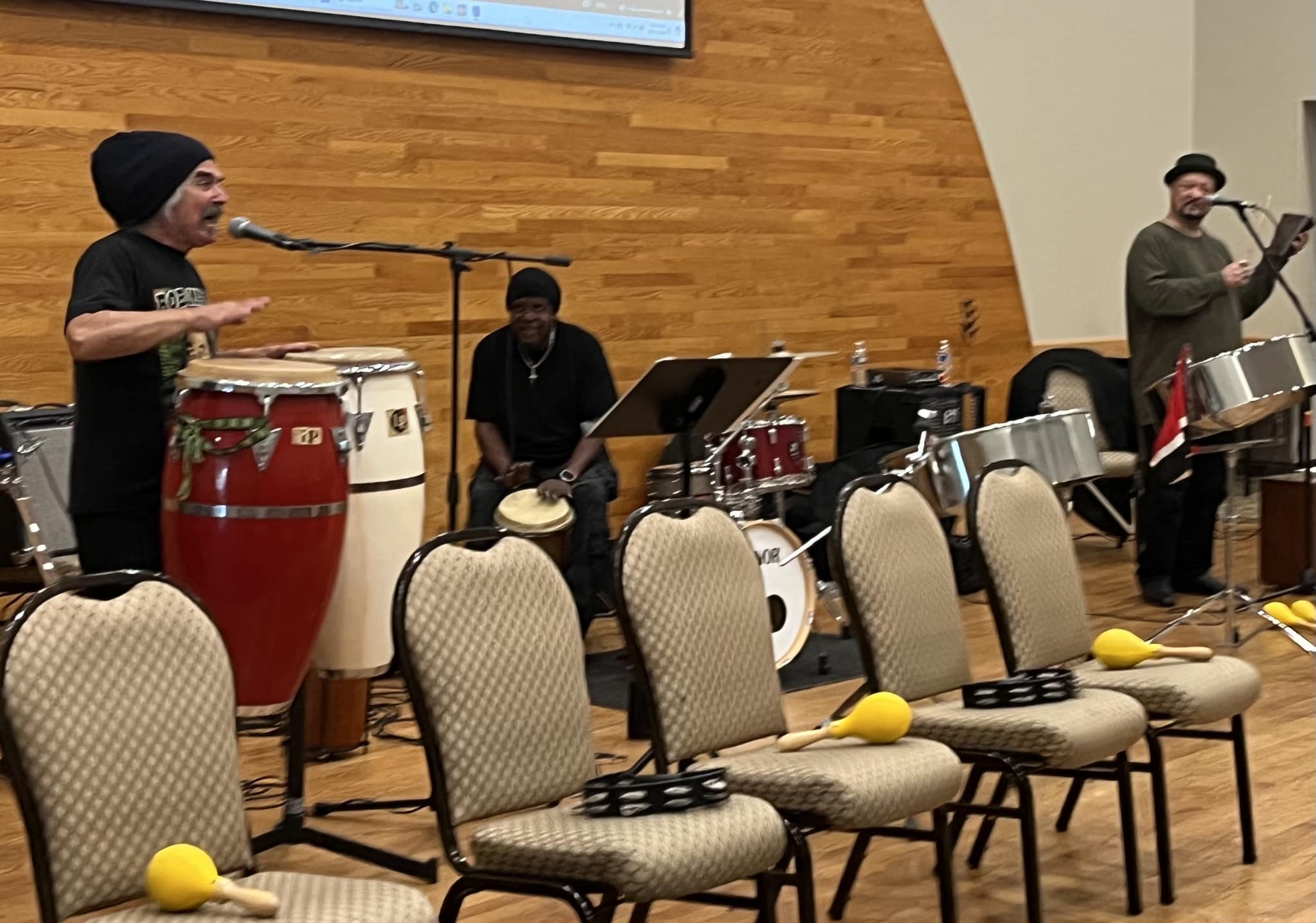
more...
Sh2-174 is a very faint but very large planetary nebula.
Located in the constellation of Cepheus and very close to the polar star.
It was discovered in the 1960s, and cataloged as a planetary nebula in the 1990s.
In the image we can see the Hydrogen zone and the other Oxygen zone very close together, but both take different directions.
Distance from Earth about 1000 light years and one of the closest planetary nebulae to Earth, with a magnitude of 14.75. ADAM BLOCK.
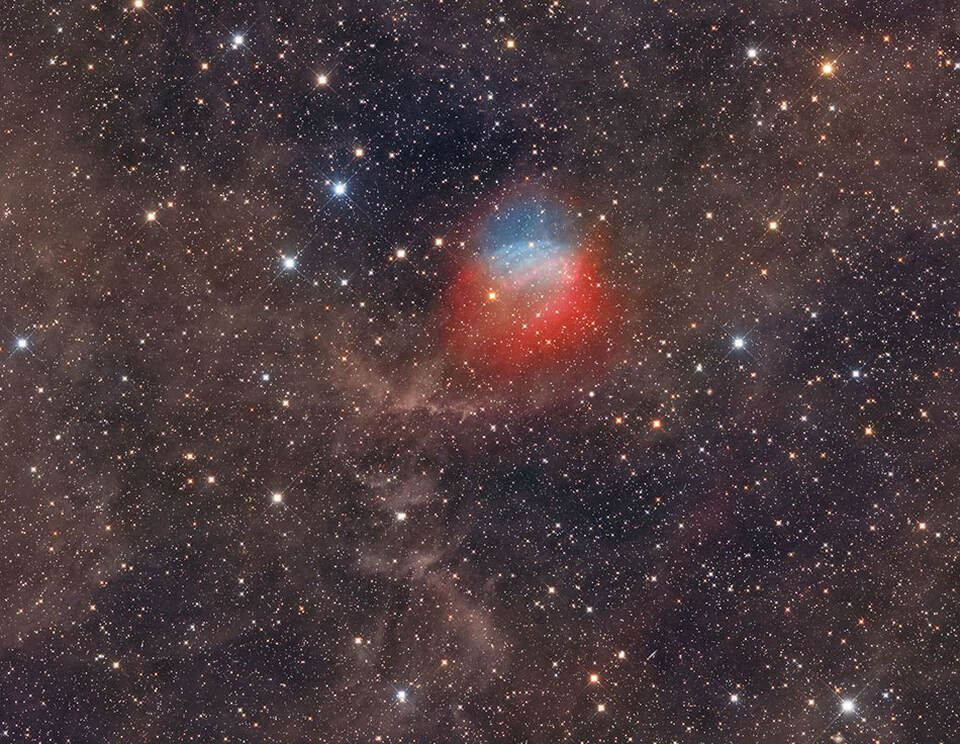
Dennis Carl Wilson (December 4, 1944 – December 28, 1983) was an American musician who co-founded the Beach Boys. He was their drummer and the middle brother of bandmates Brian and Carl Wilson. Dennis was the only true surfer in the Beach Boys, and his personal life exemplified the “California Myth” that the band’s early songs often celebrated. He was also known for his association with the Manson Familyand for co-starring in the 1971 film Two-Lane Blacktop.
Wilson served mainly on drums and baritone backing vocals for the Beach Boys. His playing can be heard on many of the group’s hits, belying the popular misconception that he was always replaced on record by studio musicians. He originally had few lead vocals on the band’s songs due to his limited baritone range, but his prominence as a singer-songwriter increased following their 1968 album Friends. His music is characterized for reflecting his “edginess” and “little of his happy charm.” His original songs for the group included “Little Bird” (1968), “Forever” (1970) and “Cuddle Up” (1972). Friends and biographers have asserted that he was an uncredited writer on “You Are So Beautiful“, a 1974 hit for Joe Cocker frequently performed by Wilson in concert.
During his final years, Wilson struggled with alcoholism and the use of other drugs (including cocaine and heroin), exacerbating longstanding tensions with some of his bandmates. His solo album, Pacific Ocean Blue (1977), was released to warm reviews and moderate sales comparable to those of contemporaneous Beach Boys albums.Sessions for a follow-up, Bambu, disintegrated before his death from drowning in 1983 at age 39. In 1988, he was posthumously inducted into the Rock and Roll Hall of Fameas a member of the Beach Boys.
more...Terence Woods (born 4 December 1947) is an Irish folk musician, songwriter/singer and multi-instrumentalist.
He is known for his membership in such folk and folk-rock groups as the Pogues, Steeleye Span, Sweeney’s Men, the Bucks, Dr. Strangely Strange and the short-lived Orphanage, with Phil Lynott. Woods also played with his wife Gay, billed initially as the Woods Band and later as Gay and Terry Woods.
Woods is most associated with the mandolin and cittern, but also plays acoustic and electric guitars, mandola, five-string banjo and concertina.
more...Lynford “Hux” Brown (4 December 1944 – 18 June 2020) was a Jamaican guitarist who featured on many successful rocksteady and reggae records in the 1960s and 1970s, and was later a member of Toots and the Maytals.
Brown was born in Port Antonio. When at school he was nicknamed “Fordie”, then “Fordux”, which became “Hux”. He formed a band, the Vikings, before moving to Kingston where he joined the Soul Brothers at Clement Dodd‘s Studio One label. In 1967, he moved to the rival Treasure Isle studio for producer Duke Reid, and the following year, Brown joined the All Stars, another studio band organised by Gladdy Anderson. He also recorded extensively with Lee “Scratch” Perry.
He played rhythm guitar on many hit rocksteady and reggae records including the influential “Girl I’ve Got A Date” by Alton Ellis, “Ba Ba Boom” by the Jamaicans, and “Bangarang” by Lester Sterling, which some regard as the first reggae record. He also played on “Rivers of Babylon” by the Melodians and “The Harder They Come” by Jimmy Cliff; and in 1971 was recruited by Paul Simon to play lead guitar on “Mother and Child Reunion“.
Brown later joined the touring version of Toots and the Maytals, where he remained for some 35 years.
He died in Oakland, California, aged 75.
more...James Stanley Hall (December 4, 1930 – December 10, 2013) was an American jazz guitarist, composer and arranger.
In 1956, Hall moved to Los Angeles, where he studied classical guitar with Vicente Gómez. In 1955 and 1956, Hall played in Chico Hamilton‘s quintet, a group associated with the cool jazz movement, and Hall’s playing began to gain attention from critics and fellow musicians.
Hall left Hamilton’s group to join another cool jazz ensemble, the Jimmy Giuffre Three, and he worked on and off with Giuffre from 1957 to 1960. Hall recorded his first solo album for Pacific Jazz in 1957, though the album made only a modest impact, and Hall did not get to record a follow-up until 1969.
During the late 1950s and early 1960s, Hall developed a preference for “challenging arrangements and interactive improvisation in duos and trios.” He taught at the Lenox School of Jazz in Massachusetts in the summer of 1959. Hall toured during the late 1950s with Jazz at the Philharmonic and worked around this time in Los Angeles with Ben Webster, appearing on Ben Webster at the Renaissance (recorded in 1960). During 1959, he recorded the first of six albums as a featured soloist with Paul Desmond. In 1960, Hall also toured and recorded with Ella Fitzgerald in Europe.
Hall moved to New York City around 1960 and began performing with band leaders including Lee Konitz (1960–61), Sonny Rollins(1961–62, 1964), and Art Farmer (1962–64). He formed a studio partnership with Bill Evans during this time, appearing on five albums with Evans from 1962 to 1966. Hall also worked as a studio guitarist for commercial recording dates during the early and mid-1960s. As a freelance studio musician, he appeared on albums by singers Big Joe Turner, Johnny Hartman, June Christy, Big Miller, and Freda Payne, as well as on commercially-oriented orchestral pop and jazz albums by Quincy Jones, Lalo Schifrin, Oliver Nelson, and Gary McFarland. His freelance jazz work in the 1960s covered a range of styles. He participated in cool jazz, bossa nova, and third stream albums led by John Lewis, Gerry Mulligan, Bob Brookmeyer, and Paul Desmond. Hall recorded bebop and hard bop sessions with Sonny Stitt, Nat Adderley, and Sonny Rollins. He recorded a soul jazz session with Hammond organist Paul Bryant.
more...1965: 12-3-65 release date: The Beatles, Rubber Soul (UK)
more...More Posts
- World Music with Jean-Bosco Mwenda
- Daily Roots with Junior Brown
- The Cosmos with M42
- Jesse Colin Young Day
- Jimmy Knepper Day
- Hoagy Carmichael Day
- Flamenco Fridays with Camarón y Tomatito
- Daily Roots with IJahman Levi
- Tribute to Bill Thompson
- The Cosmos with Simeis 147
- Alphonse Mouzon Day
- Charlie Palmieri Day
- Sal Salvador Day
- Coleman Hawkins Day
- World Fusion with Altin Gün
- Daily Roots with Winston Jarrett
- The Cosmos with Arp 273
- Duane Allman Day
- Meredith Monk Day
- Dr John Day

